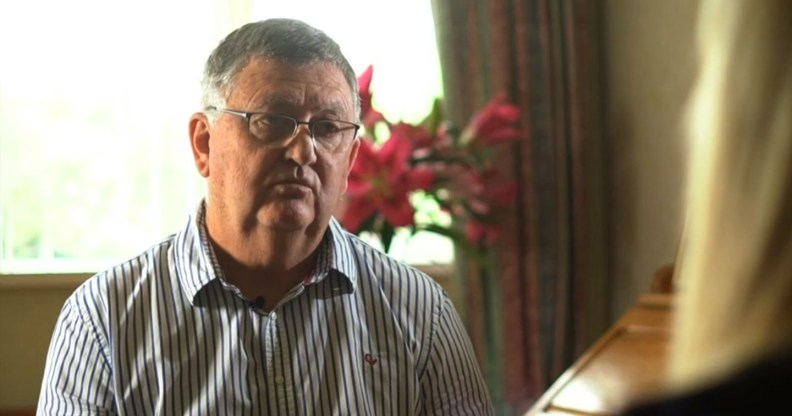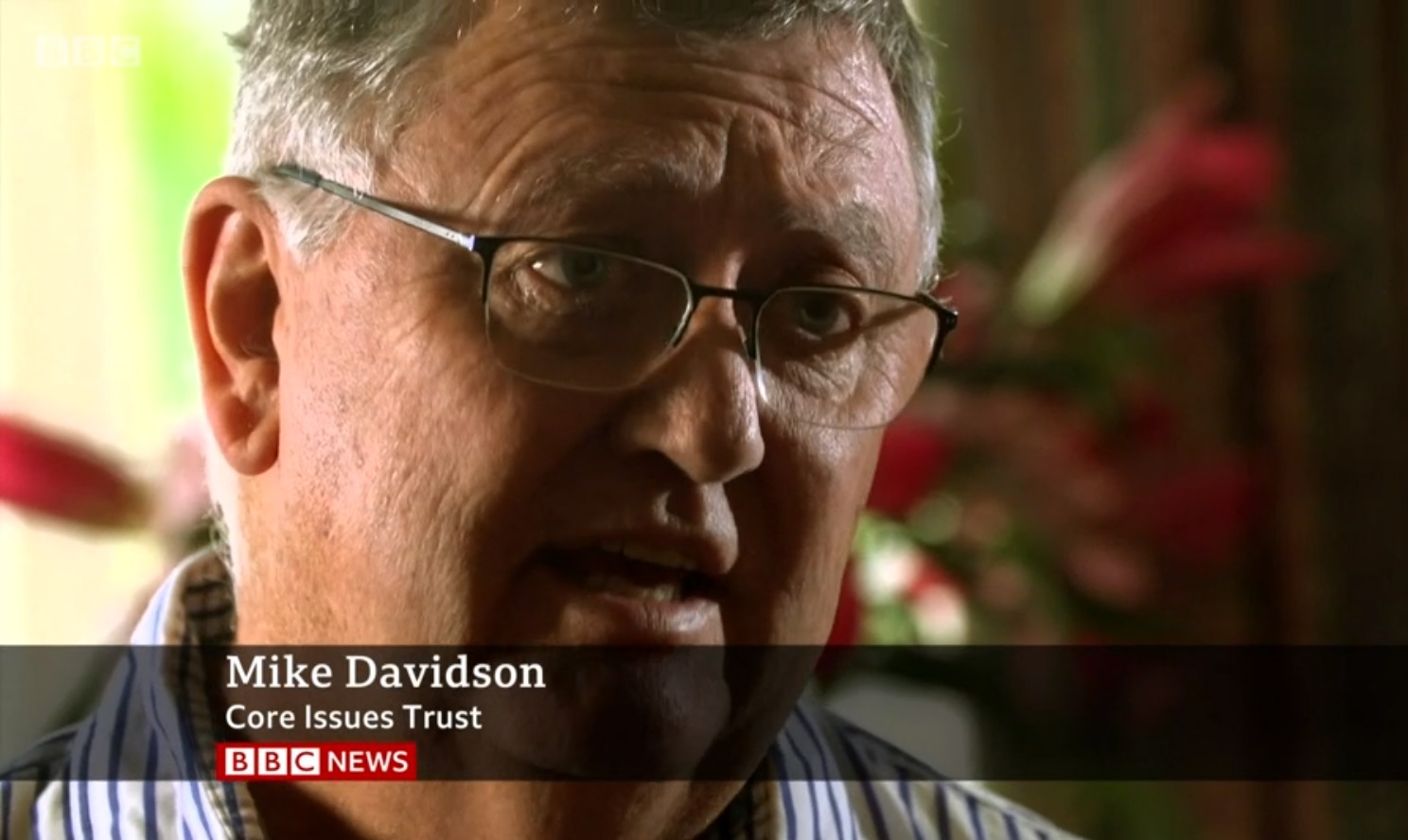BBC under fire for presenting abhorrent, traumatising conversion therapy as a two-sided debate. It really isn’t

Mike Davidson of Core Issues Trust promoted the debunked idea that sexual orientation and gender identity can be cured.
Mike Davidson of Core Issues Trust promoted the debunked idea that sexual orientation and gender identity can be cured.
The BBC has faced criticism for a segment which platformed groups advocating conversion therapy.
The report, which aired on the BBC News at Six on Monday (August 10), featured Gareth, a survivor of conversion therapy, opening up about the lasting damage caused to him by attempts to cure his sexuality.
But the segment, which refers to “so-called conversion therapy”, also gave airtime to Mike Davidson of Core Issues Trust to advocate for the debunked idea that sexual orientation and gender identity can be cured.
In it, he claims: “What we are promoting is an exploration of sexual fluidity, and what we find over a period of time is that when behaviours change, feelings change.” Davidson adds: “It’s not us trying to change anybody, people seek us out because they hear of someone going in a different direction.”
The BBC report also features Matthew Grech, a man who describes himself as a former homosexual but who has previously admitted to still experiencing same-sex attraction.

Mike Davidson of Core Issues Trust promoted the debunked idea that sexual orientation and gender identity can be cured.
It briefly includes a psychologist, Glenn Mason, making clear that research concludes sexual orientation cannot be changed.
But the BBC’s approach has attracted anger from some LGBT+ viewers, who rejected the attempt to “balance” pro and anti conversion therapy viewpoints.
BBC under fire for ‘nonsense’ framing of conversion therapy.
One critic tweeted: “Conversion therapy fundamentally undermines the right of LGBT+ people to exist, there is no ambiguity over where the line should be drawn, it is simply wrong, presenting it as a debate with two legitimate sides is just nonsense.”
Another added: “Love to have a ‘both sides’ piece on the @BBCNews at 6 on ‘so-called conversion therapy’ that ended with ‘there are plans to study it, but it’s unclear where to draw the line’.
“I eagerly await the BBC’s ‘both sides’ piece on torture.”
One response read: “I am… disgusted. Presenting abhorrent views in a palatable way for the masses, be it blurting out the N word, invalidating gay lives or using anti-refugee rhetoric, is what the BBC is doing best [at the moment].”
The BBC’s guidelines make clear “impartiality usually involves more than a simple matter of ‘balance’ between opposing viewpoints” and “does not require absolute neutrality on every issue”.
A BBC spokesperson told PinkNews: “This report was about Boris Johnson’s pledge to ban what’s known as ‘conversion therapy’, a practice which claims to be able to change a person’s sexuality. The piece focused on the story of a young man who has rejected the therapy and talked of the pain and unhappiness it has caused him.
“Our reporter put this case to Mike Davidson, a man behind one of the ‘conversion therapy’ groups, challenged him robustly and scrutinised his practices, including putting examples to him where his methods have been said to be detrimental to people’s mental health.
“Despite the Government’s promise of a ban, conversion therapy has not yet been made illegal in the UK, so it is in the public interest that we continue to scrutinise these practices.”
Nearly every genuine medical body has disavowed the practice of conversion therapy, the discredited idea that a person can change their sexual orientation or gender identity.
The UK does not currently ban the practice, meaning it remains legal for Core Issues Trust to offer its services “to people who want to explore moving away from unwanted same-sex attraction and gender confusions”.
Despite previous briefings that a ban on conversion therapy would be brought forward imminently, prime minister Boris Johnson indicated last week that more research is needed on the issue before legislating.

